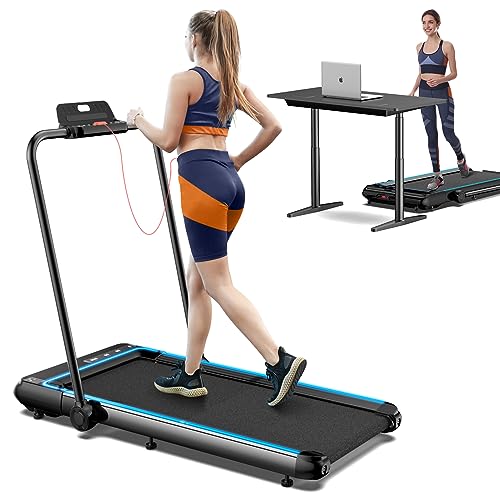Everything You Need To Learn About Treadmill
The Comprehensive Guide to Home Treadmills: Everything You Need to Know
With an increasing focus on physical fitness and health in today's fast-paced world, home treadmills have emerged as a popular option for those seeking to instill routine exercise into their regimens. Whether for visual enhancement, convenience, or physical fitness tracking, treadmills provide a flexible option for lots of physical fitness lovers.
This short article checks out numerous aspects of home treadmills, providing insights into their features, advantages, and essential considerations for prospective buyers. It also deals with typical questions and mistaken beliefs about these workout machines.
Tabulation
- What is a Home Treadmill?
- Advantages of Having a Home Treadmill
- Kinds Of Home Treadmills
- Key Features to Consider
- Maintenance Tips for Your Treadmill
- FAQs about Home Treadmills
- Conclusion
What is a Home Treadmill?
A home treadmill is a fitness gadget designed for running or walking while remaining in one place. Unlike traditional running outside, it allows individuals to work out in the convenience of their homes. Treadmills can be powered by electricity or can be manual, requiring the user to propel the belt with their own effort.
Benefits of Having a Home Treadmill
The advantages of owning a home treadmill are many. Below are some essential benefits:
- Convenience: Users can work out at any time, preventing weather constraints or gym schedules.
- Time Management: Reduced travel time to and from a gym, enabling quicker exercises.
- Personal privacy: The convenience of exercising in a personal environment, ideal for those who feel self-conscious in public settings.
- Versatility: Adjustable speeds and inclines offer varied workout alternatives, accommodating various physical fitness levels.
- Combination with Technology: Many contemporary treadmills come geared up with physical fitness apps and tracking systems that monitor development.
Types of Home Treadmills
Home treadmills can be classified into a number of types, each serving different needs and choices:
Type
Description
Motorized Treadmills
Electric motors that enable users to adjust speed and slope with push-button controls.
Handbook Treadmills
Needs physical effort to move the belt, generally more compact and portable.
Folding Treadmills
Space-saving styles that can be folded when not in use.
Treadmill Desks
Enable users to walk while working, integrating physical fitness into their daily tasks.
Selecting the Right Treadmill
Consider these elements when picking the appropriate kind of treadmill for individual usage:
- Space Requirements: Ensure the treadmill fits comfortably in your designated workout area.
- Speak with Reviews: Look at user feedback and expert reviews to understand performance and reliability.
- Spending plan: Set a clear spending plan, as rates can vary widely.
- Usage Frequency: Assess how frequently the treadmill will be utilized to determine sturdiness and features needed.
Secret Features to Consider
When looking for a home treadmill, it's essential to examine specific functions that boost the workout experience. Certain features to prioritize consist of:
- Motor Power: Look for a motor with a minimum of 2.0 CHP for dependable performance.
- Running Surface: A larger running surface is more suitable, especially for those who wish to sprint or take longer strides.
- Slope Options: Adjustable inclines increase workout strength and help engage various muscle groups.
- Cushioning System: Good shock absorption can significantly decrease the influence on joints and prevent injuries.
- Innovation Integration: Built-in heart rate displays, Bluetooth connectivity, and integrated exercise programs can enhance your physical fitness journey.
Maintenance Tips for Your Treadmill
A well-kept treadmill can last for several years. Routine maintenance is crucial to making sure optimum performance. Think about these maintenance suggestions:
- Keep It Clean: Wipe down the surface regularly to get rid of dust and sweat.
- Lube the Belt: Apply silicone lube according to producer standards to minimize friction.
- Look for Wear and Tear: Regularly examine the belt and deck for signs of damage or excessive wear.
- Examine the Motor: Clean dust from the motor location and make sure appropriate ventilation to avoid overheating.
- Follow User Manual: Always describe the user handbook for specific upkeep instructions connected to the design.
FAQs about Home Treadmills
1. Are article source for weight loss?
Yes, home treadmills can be really reliable for weight reduction if used consistently as part of a balanced diet and physical fitness routines.
2. How much space do I need for a treadmill?
While it varies by design, a common home treadmill will require at least 6.5 feet in length and 3 feet in width.
3. Do I need special shoes to use a treadmill?
While special shoes aren't needed, purchasing excellent quality running shoes can help avoid injuries and enhance comfort.
4. Can I watch television or listen to music while utilizing a treadmill?
Absolutely! Most modern-day treadmills have functions that allow users to watch TV or listen to music through integrated speakers or through Bluetooth connections.
5. How long should I utilize a treadmill each day?
For ideal health benefits, objective for at least thirty minutes of moderate-intensity exercise on the treadmill most days of the week.
Owning a home treadmill opens the door to practical and flexible workouts appropriate for people of all ability levels. Comprehending the various types, essential features, and correct upkeep can help guarantee that your investment stays effective and satisfying. As physical fitness ends up being a top priority for many, home treadmills present an excellent chance for individual health and wellness, making it much easier than ever to incorporate exercise into life.
With the right resources and guidance, a home treadmill can become an indispensable part of one's fitness journey, helping people accomplish their objectives in a sustainable manner.
